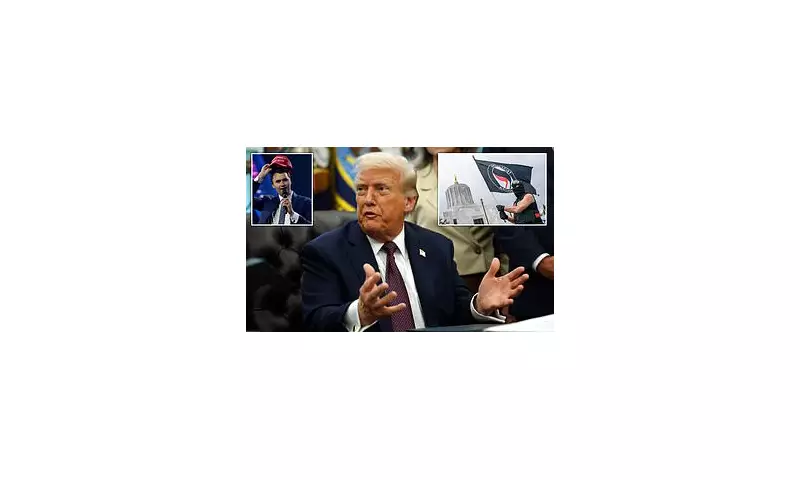
In a move that has ignited fierce political debate, former US President Donald Trump has proposed designating the far-left activist movement Antifa as a terrorist organisation while threatening to revoke the tax-exempt status of what he termed 'left-wing' organisations.
The controversial announcement came during a rally where Trump outlined his hardline approach to dealing with political opposition if he returns to power. The proposal represents one of the most aggressive stances against left-leaning groups by a major political figure in recent memory.
Targeting Organisational Status
Central to Trump's proposal is the removal of tax-exempt privileges from organisations he perceives as supporting left-wing activism. This would potentially affect numerous non-profit groups, educational institutions, and social justice organisations that currently benefit from charitable status.
Legal experts immediately questioned the constitutionality of such measures, noting that tax-exempt status is typically determined by an organisation's activities rather than its political leanings.
Antifa: Terrorist Designation Debate
The proposal to designate Antifa - short for 'anti-fascist' - as a terrorist organisation revives a previous Trump administration initiative that faced significant legal and practical challenges. Antifa represents a decentralised movement rather than a structured organisation, complicating any formal designation process.
Security analysts have expressed concerns about the implications of designating domestic groups as terrorist organisations, noting this could set a precedent for targeting political movements based on their ideology.
Political Reactions and Implications
The announcement has drawn sharp criticism from civil liberties groups and Democratic politicians, who accuse Trump of attempting to weaponise government institutions against political opponents. Supporters, however, argue that strong measures are necessary to combat political violence and ensure accountability.
This development comes amid heightened political tensions in the United States and raises significant questions about the boundaries between national security concerns and political expression.
Legal scholars suggest that implementing such policies would likely face immediate court challenges, potentially setting up landmark legal battles over free speech, association rights, and the limits of executive power.





